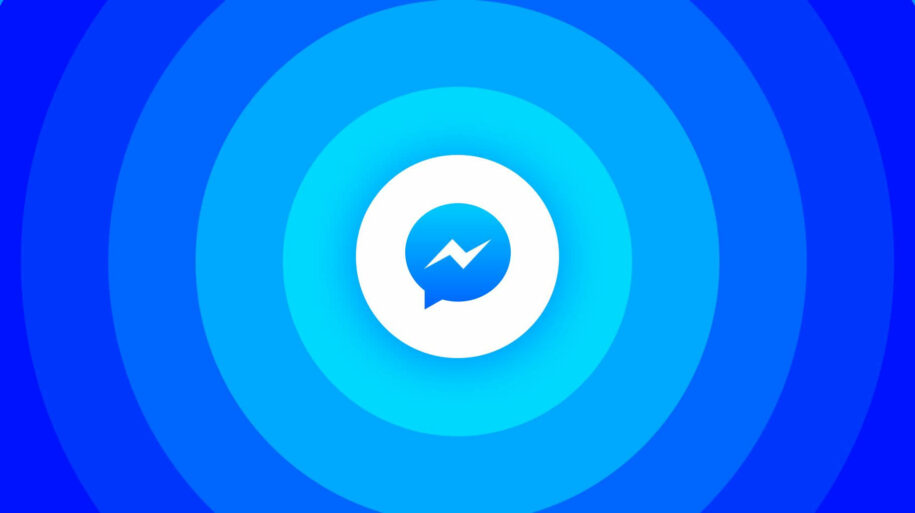Before the social media age and global internet connectivity, we mainly communicated through our landlines and cellular phones. We sent text messages via SMS and did voice calls with each other through the power of cellular service networks.
But as the internet, smartphones, and social media developed in their reach, power, and influence, all began changing. Text and voice calls were almost overnight replaced by private messages and calls on Facebook Messenger.
With Facebook Messenger, messages and calls were now free! All one needed was a smartphone and a connection to the internet. 2011 saw accelerated development in Wi-Fi and smartphone technology, and Facebook Messenger’s introduction was perfectly poised to take advantage of this growth to be the people’s chief communication platform.
Table of Contents
The Origins of Messenger

We use Messenger to send messages, pictures, gifs, stickers, and files and make calls. Messenger has always been available for us, and we might have a hard time remembering how it all came to be in the summer of 2011.
Messenger, before its standalone release on iOS devices and Android, was originally known as Facebook Chat in 2008. It used to be a native feature of Facebook for private messages. Facebook chat was only exclusively usable within Facebook.
Yes, it was useful but Facebook Chat had to undergo more changes to realize its true potential and become the ultimate messaging app we all know and love today.
When Did Facebook Messenger Start?
So, when did Facebook Messenger start being the Messenger we know and love today? If you ask us, Facebook Messenger, as we know it today, started in 2015.
Sure, Messenger’s current features were not all there yet in 2015 but Messenger is important today because we can message, voice call, voice messaging, and do video calls using the app in 2015.
A lot of features have been added before and after 2015 to the Messenger chat application. Money Transfer enabled U.S. users to make friend payments and could send money to friends through the app on their mobile devices.
The bot platform was introduced in 2016 to interact with users regarding group chats, chat extensions, and QR scans. Location sharing allowed active users to share their exact location securely with the people they choose to share it with.
Instant Games, chat heads, message history, emojis, stickers, and other quirky features exclusive to the average user make the use of the Messenger app unique. But the changes of 2015 made Messenger a staple tool for our communication.
No longer would you need another platform for all your communication needs after they enabled the Messenger user base to do video calls in 2015.
Messenger Evolution
We can view the evolution of Messenger by singling out the most important features added to the app
· Pre-App Era (2008-2011) – Facebook Chat was still a thing in this period and chatting was its native feature. You could not use Facebook Chat without logging in to your Facebook on a PC.
· App Era (2011) – Now, Messenger is a stand-alone app that you download separately. It has now evolved to be everybody’s chat hub with friends and family who had a Facebook account. This is the time you could say social media has transferred to the smartphone.
· Calls Era (2013) – This was the time Messenger took over the duty of handling calls for free. By this time, Messenger made calling friends, family, and contacts for free!
· Video Calls Era (2015-) – Messenger has upped the ante and added video calls to the free features its user base could take part of! This was the time Messenger was the fastest-growing app in the U.S.
· Reactions and Replies Era (2017-2019) – Here, Messenger has focused on giving the app a more human touch by imbuing the user to reply and react to specific messages to add more instinctive support to its users.
· Rooms Era (2020) – A feature that has been very useful in the pandemic of 2020, this feature allowed up to 50 users in a single video chat.
Facebook Messenger Today
Today, everyone has Messenger or has had it on their phone’s home screen or as a desktop PC app. This is because the app is practical, intuitive, and free, and is constantly evolving to properly service its users better with each new version of itself.
Messenger: The Name Says It All
Though there are a lot of other messenger apps, Messenger remains one of the main ways we chat or call people and businesses. Facebook may have seen better days as a social platform, but Messenger still holds its own as a communication tool.
As long as Meta Platforms and Messenger continue to evolve as helpful messaging app, then it will remain the messaging app of the people for years to come.
- How to Create a Winning Social Media Strategy for Your Business? - October 12, 2023
- Elevate Your Online Presence: Tips for Better Social Media Use - October 12, 2023
- The Ultimate List of Top Social Media Apps and Sites - October 12, 2023

